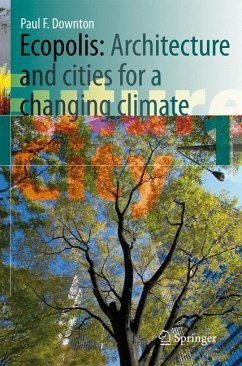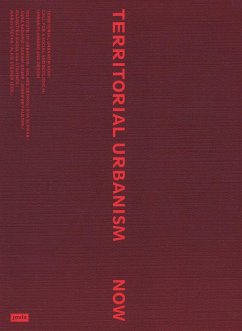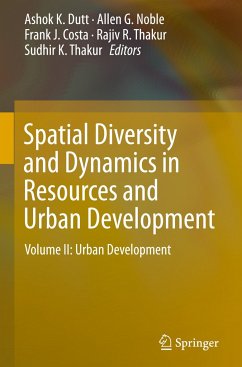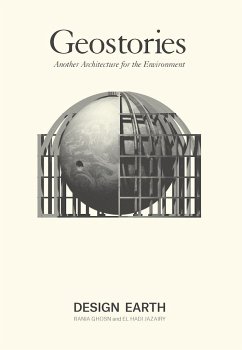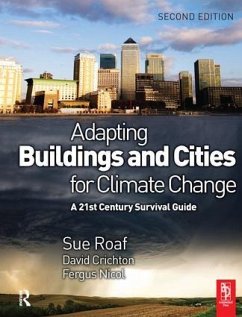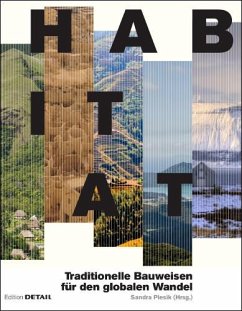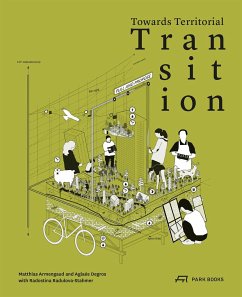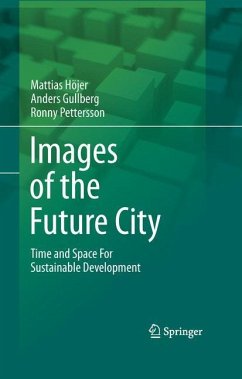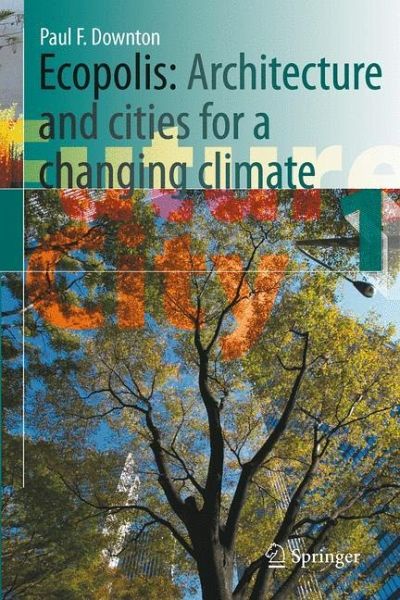
Ecopolis
Architecture and Cities for a Changing Climate
Versandkostenfrei!
Versandfertig in 6-10 Tagen
228,99 €
inkl. MwSt.
Weitere Ausgaben:

PAYBACK Punkte
114 °P sammeln!
From 2008, for the first time in human history, half of the world's population now live in cities. Yet despite a wealth of literature on green architecture and planning, there is to date no single book which draws together theory from the full range of disciplines - from architecture, planning and ecology - which we must come to grips with if we are to design future cities which are genuinely sustainable.Paul Downton's Ecopolis takes a major step along this path. It highlights the urgent need to understand the role of cities as both agents of change and means of survival, at a time when climat...
From 2008, for the first time in human history, half of the world's population now live in cities. Yet despite a wealth of literature on green architecture and planning, there is to date no single book which draws together theory from the full range of disciplines - from architecture, planning and ecology - which we must come to grips with if we are to design future cities which are genuinely sustainable.
Paul Downton's Ecopolis takes a major step along this path. It highlights the urgent need to understand the role of cities as both agents of change and means of survival, at a time when climate change has finally grabbed world attention, and it provides a framework for designing cities that integrates knowledge - both academic and practical - from a range of relevant disciplines.
Identifying key theorists, practitioners, places and philosophies, the book provides a solid theoretical context which introduces the concept of urban fractals, and goes on to present a series of design and planning tools for achieving Sustainable Human Ecological Development (SHED). Combining knowledge from diverse fields to present a synthesis of urban ecology, the book will provide a valuable resource for students, researchers and practitioners in architecture, construction, planning, geography and the traditional life sciences.
Paul Downton's Ecopolis takes a major step along this path. It highlights the urgent need to understand the role of cities as both agents of change and means of survival, at a time when climate change has finally grabbed world attention, and it provides a framework for designing cities that integrates knowledge - both academic and practical - from a range of relevant disciplines.
Identifying key theorists, practitioners, places and philosophies, the book provides a solid theoretical context which introduces the concept of urban fractals, and goes on to present a series of design and planning tools for achieving Sustainable Human Ecological Development (SHED). Combining knowledge from diverse fields to present a synthesis of urban ecology, the book will provide a valuable resource for students, researchers and practitioners in architecture, construction, planning, geography and the traditional life sciences.





